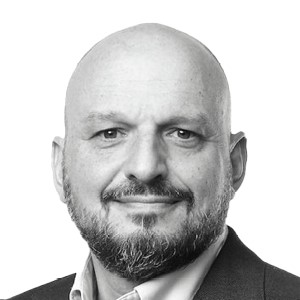The demands placed on chief financial officers seem to grow ever larger, whether from the senior leadership team and Board seeking a strategic perspective, investors looking to build value and generate returns, or customers increasingly focused on price point in the current operating market. This is generally true across different industries and ownership structures.
Data from Criticaleye’s most recent CFO Research paints an overall picture of finance leaders being pulled in different directions, with ‘the Chair/Board’ (48 percent) resembling the most challenging internal stakeholder for respondents, and ‘customers’ (21 percent) the most challenging externally. Meanwhile, ‘pressure to provide a return to investors’ (52 percent) was deemed the biggest factor for senior leaders becoming too focused on short-term goals.
Neya Patel, Senior Account Executive and CFO Lead at Criticaleye, said: “First and foremost, the CFO must be able to plot a course through the choppy waters of the current business landscape, demonstrating an ability to be agile in responding to sudden and evolving economic conditions and stimuli, but also remaining committed to the overall business strategy, which they will have had a hand in creating.”
The last five years have provided the sternest of tests for finance leaders, perhaps even more so for those in charge of consumer-facing organisations, given the wild swings in saving and spending behaviour.
Paul Sheriff, CFO-COO at private equity-backed consumer credit provider NewDay has had to maintain a flexible approach with regards to balancing a growth trajectory against profit and cash generation.
“We first of all had Covid, followed by a period of recovery before the more recent period of very high inflation. As a consumer finance business, you clearly need to adapt your strategies in those different macro periods,” Paul stated. “Nevertheless, we have still been able to deliver good business growth coming out of Covid and, more recently, as inflation has fallen this year.”
It largely comes down to the CFO to formulate an appropriate response to a rapidly changing financial environment, with the characteristic of flexibility standing out as a core competency for the modern CFO, according to
Salar Farzad, Chief Operating Officer and former CFO at property and construction consultancy Gleeds.
“I don’t know any business where agility and adaptability aren’t critical,” he said. “Surprises can come from any place and even the ‘known unknowns’ that you're trying to anticipate can manifest in surprising ways. Any CFO who is not adaptable shouldn't be in the role.”
Different Phases
On top of this ability to anticipate and effectively respond to changes in the economic climate, the CFO is also expected to be a significant contributor to strategic discussions at Board level, given their fiscal expertise and vantage point.
“When I speak to the Board and the CEO, what they want from me is a strategic partnership and being involved in strategy,” said
Tobias Hestler, Group CFO at FTSE 100 consumer health giant Haleon.
“But that is only part of my job. The challenge is that, ultimately, anything that happens in the company somehow crosses your desk,” he continued. “You need to have this ability to be a strategist on one day, and then the next day, go into the nth degree of detail to ensure there isn’t a control issue, and then the next day, it’s about compliance.
“So how do you jump between governance, strategy and all the other phases of a CFO’s role? That’s where the challenge is and what a Board, a CEO and a management team expect.”
This necessity to switch between different ‘phases’ of the job often naturally lends itself to heads of finance taking on extra operational responsibilities, as demonstrated by both Paul and Salar in their former and current roles, which have combined finance and operational leadership at their respective businesses.
Paul explained: “If you look around the executive table, the most likely member who can cover things like risk, legal and operational areas is probably someone from the finance community.” While equipped with sufficient oversight to lead both functions, it becomes imperative for a CFO taking on additional operational responsibilities to have a strong finance team in place to ‘hold the fort’ at certain times.
“It’s about making sure you’re clear as to where you’re spending your time, where you’re delegating and having the right people and team to do that,” he said.
Reflecting on his 30 years in finance leadership roles, Tobias said: “When I started, the key focus was probably on accounting and controls. I think the remit of the CFO over time has grown, as have the expectations of the role, particularly the business partnering element and involvement in strategy.”
On a similar note, Salar described the evolution of the role during his career. “You're not just somebody who counts the numbers and presents them, but actually you're very much part and parcel of the decision making and sometimes you're leading the decision making.”
The emergence in recent years of more readily available, real-time data and ever more sophisticated technological tools – namely Generative AI – to assess the data will only accelerate the shift of the CFO from merely ‘number counting’ to a more comprehensive leadership voice.
“As we look forward, that real-time view and ability to look at how the business will perform in the future will become more important. That will necessitate continued investment to automate finance but should lead to more fulfilling roles where financial insight can help drive the business forward,”
Paul concluded.
Jacob Ambrose Willson, Senior Editor, Criticaleye
Excerpts in this article have been taken from recent editions of Criticaleye's 'CFO Interviews' series. You can read the full articles here:



